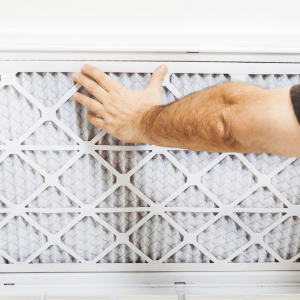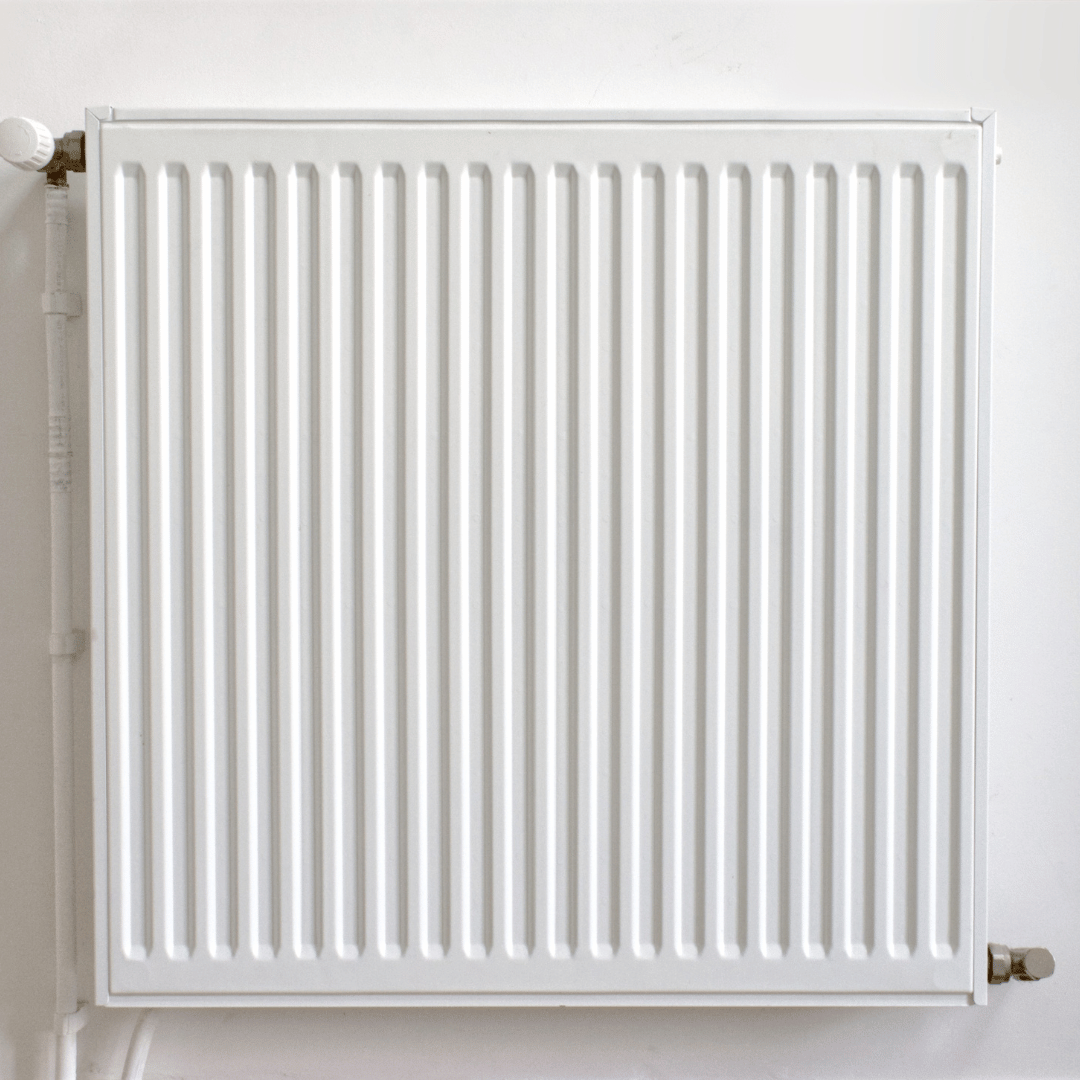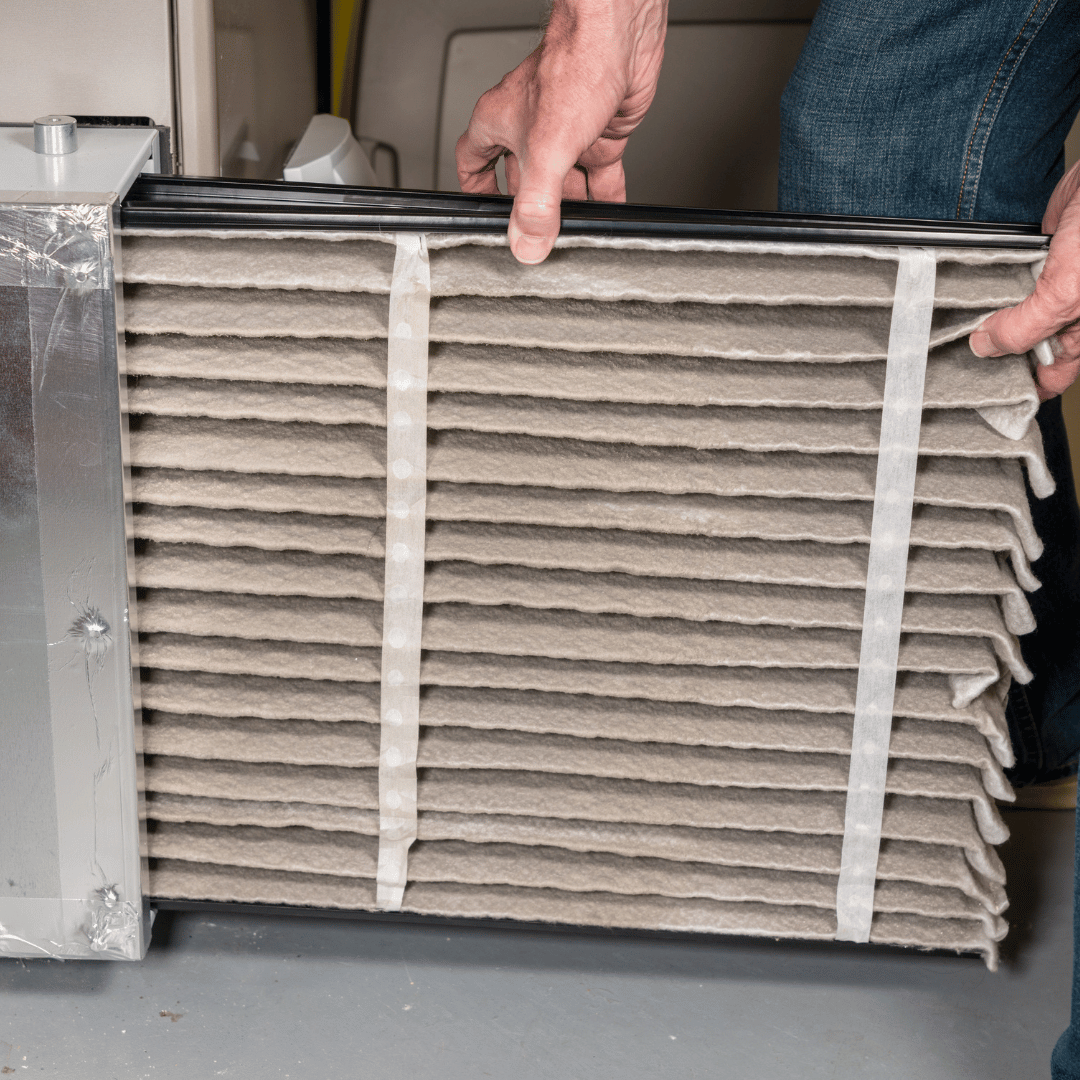
Essential Guide to Commercial AC Filters: Maintenance, Recommendations, and Tips
Proper maintenance of commercial AC filters is essential to keeping your HVAC system running smoothly and efficiently. Regular filter changes not only improve air quality but also help extend the lifespan of your AC unit, reducing the risk of expensive repairs or premature replacement. Just like with other aspects of preventative home maintenance, such as gutter cleaning, window washing, and dryer vent cleaning, staying on top of AC filter maintenance is crucial to maintaining a comfortable, energy-efficient environment for your business or property.
This article will walk you through the importance of AC filter maintenance, how to choose the right filters for your system, and how to recognize when it’s time to replace them. Additionally, we’ll explain how commercial AC filter care ties into overall interior home maintenance and exterior home maintenance strategies that keep your property in top shape year-round.
How Often Should Commercial AC Filters Be Changed?
The frequency with which you should change commercial AC filters depends on several factors, including the type of business, the size of the AC unit, and the level of air pollution in your area. On average, commercial AC filters should be replaced every 1 to 3 months. However, certain conditions may require more frequent changes:
- High foot traffic or industrial settings: Locations with more dust, dirt, or pollutants in the air may need their filters changed more often.
- Seasonal changes: In areas with high pollen counts during specific seasons, filters may need to be replaced more regularly to ensure clean air circulation.
- Usage: If the AC is running consistently throughout the day or in high-demand environments, the filters will collect debris faster and need to be changed sooner.
Changing the filter on time ensures that your AC system runs efficiently, which can help reduce energy consumption, lower operating costs, and prevent damage to the system that might require costly repairs.
By incorporating regular preventative home maintenance practices, such as changing filters on schedule, you can ensure optimal performance, much like performing routine gutter cleaning or dryer vent cleaning to prevent clogs and other issues.
Do Commercial AC Units Have Filters?
Yes, commercial AC units do have filters, and they play a critical role in the overall performance and efficiency of the system. These filters are designed to trap dust, dirt, pollen, and other airborne particles, preventing them from circulating throughout the space and being blown into the air you breathe.
While residential AC systems typically use smaller filters, commercial units often require larger and more robust filters due to their higher capacity and the larger spaces they serve. The filters are typically located in the return air ducts, where they capture the particles before the air passes through the cooling coils.
Maintaining the filters in your commercial HVAC system is part of effective preventative home maintenance, just like keeping up with exterior home maintenance tasks such as gutter cleaning and window washing. When these filters are clogged or dirty, they can reduce airflow, decrease system efficiency, and even damage your AC unit.
To ensure optimal performance, it’s important to regularly inspect and replace the filters in your commercial AC units. Proper maintenance of these filters helps improve air quality, reduce allergens, and increase the longevity of your HVAC system.
What Filters Do HVAC Techs Recommend?
When it comes to choosing the right commercial AC filters, HVAC professionals typically recommend filters with a higher MERV rating (Minimum Efficiency Reporting Value), as these filters are more effective at capturing airborne particles. The right filter depends on the specific needs of your business, such as the environment, indoor air quality requirements, and the type of HVAC system in use.
Here are a few common types of filters recommended by HVAC technicians for commercial settings:
- Fiberglass Filters: These are the most basic and affordable filters, offering minimal filtration. They’re often used in less demanding environments, but they are not ideal for businesses that require high air quality standards.
- Pleated Filters: A popular choice for commercial HVAC systems, pleated filters have a larger surface area, which increases their efficiency at trapping particles. These filters are better at capturing dust, pollen, and other debris.
- HEPA Filters: High-Efficiency Particulate Air (HEPA) filters are among the most efficient filters available, capturing up to 99.97% of airborne particles. These are ideal for businesses that require a higher level of air purity, such as hospitals, laboratories, or offices with sensitive equipment.
- Carbon Filters: These filters help reduce odors and gases in the air, making them suitable for spaces where air quality is a concern, such as restaurants, salons, and hotels.
HVAC professionals often recommend MERV 8-13 filters for most commercial spaces, balancing effective filtration with airflow efficiency. However, the best filter for your system will depend on your needs. Consult with a professional technician to determine the optimal filter for your commercial AC system.
Just as you would rely on professional services for preventative home maintenance tasks like gutter cleaning, dryer vent cleaning, and window washing, working with HVAC experts ensures your AC system operates efficiently and safely while maintaining high indoor air quality.
How Do I Know What Filter to Get for My AC?
Choosing the right AC filter for your commercial system can be a bit tricky, but several key factors can help guide your decision. Here’s what to consider when selecting the best filter for your needs:
1. MERV Rating
The MERV (Minimum Efficiency Reporting Value) rating determines how well the filter captures airborne particles. The higher the MERV rating, the more particles it can filter out. For commercial spaces, filters with a MERV rating between 8 and 13 are generally recommended. However, in environments that require higher air quality (such as hospitals or labs), a higher MERV rating (up to 16) may be necessary.
2. Type of Particles You Want to Filter
Consider the types of contaminants present in your business environment. If you’re dealing with high levels of dust, smoke, or pollen, you may need a filter that can capture finer particles. Filters like pleated filters or HEPA filters are designed for better filtration and are ideal for businesses with stricter air quality standards.
3. Size of the Filter
Ensuring the correct filter size is essential for efficient system operation. Filters come in various sizes, and an incorrect size can lead to poor airflow, strain on the system, or bypassing of particles. Always check your AC unit’s specifications to determine the proper size before purchasing a filter.
4. Filter Material
AC filters can be made from different materials, such as fiberglass, polyester, or pleated paper. Pleated filters are more efficient at trapping dirt and dust, while fiberglass filters are typically more affordable but less effective at filtering smaller particles.
5. Airflow Requirements
Some commercial AC units require higher airflow to function properly. Make sure the filter you choose doesn’t impede airflow, as this could reduce your system’s efficiency and increase energy consumption.
6. Specific HVAC System Requirements
Different commercial HVAC systems may require different types of filters. Consult with an HVAC technician to ensure that the filter you choose is compatible with your system’s specifications and air handling capacity.
By considering these factors and consulting with a professional HVAC technician, you can select the right filter for your commercial AC system. Regular maintenance, including changing the filter on time, is just as important as other preventative home maintenance tasks like gutter cleaning, window washing, and dryer vent cleaning to ensure your system remains efficient and reliable.
How Do I Know What Size Filter I Need?
Choosing the correct size filter for your commercial AC unit is crucial for optimal performance and efficiency. A filter that’s too large or too small can lead to a variety of problems, including poor airflow, increased energy consumption, and reduced filtration. Here’s how to determine the right size filter for your system:
1. Check the Filter Size Printed on the Existing Filter
The simplest way to find the correct filter size is to look at the filter currently in use. Most filters have their dimensions printed on the side (e.g., 16″ x 20″ x 1″). If you’re replacing an old filter, use these dimensions to find the same size.
2. Measure the Filter Slot
If you don’t have the old filter or can’t find the dimensions, you can measure the slot where the filter fits in the air handler. Use a tape measure to measure the length, width, and depth (thickness) of the space. Be sure to measure accurately to ensure a perfect fit for the new filter.
3. Follow Manufacturer Recommendations
Consult your commercial AC unit’s manual for the recommended filter size. Manufacturers typically provide guidelines for the correct filter size based on the model of the HVAC system. Following these recommendations ensures the filter is compatible with your unit and operates at peak efficiency.
4. Consult an HVAC Technician
If you’re still unsure about the right size, it’s always best to consult a professional. An HVAC technician can help determine the appropriate filter size based on the specifications of your commercial AC system and your unique air quality needs.
Why Filter Size Matters
Choosing the correct size filter ensures proper airflow and filtration. A filter that is too small won’t fit snugly, allowing air to bypass the filter, which can lead to inefficient filtration and strain on your system. A filter that is too large can impede airflow, which reduces the system’s efficiency and can lead to overheating or even failure.
By maintaining the correct size filter, you’re ensuring that your commercial HVAC system operates efficiently and maintains good air quality, just like how gutter cleaning, dryer vent cleaning, and window washing are essential for preserving the overall health of your property.
How to Tell If an HVAC Filter Needs Changing
Knowing when to change your commercial AC filter is essential to maintaining your HVAC system’s performance. If you wait too long to replace the filter, it can cause air quality issues, reduced efficiency, and strain on your AC unit. Here are several signs to look out for that indicate it’s time to change the filter:
1. Decreased Airflow
If you notice that the airflow from your AC vents has decreased or the air feels weaker, it could be due to a clogged filter. A dirty filter obstructs airflow, making it harder for your system to circulate cool air throughout your space. This could lead to your AC system working harder, increasing energy consumption and wear on the system.
2. Increased Energy Bills
A clogged or dirty filter forces your commercial HVAC system to work harder to push air through the ducts. As a result, your energy bills may rise due to the added strain on the system. If you notice a sudden spike in energy costs, it could be a sign that your filter needs changing.
3. Visible Dust and Debris Around the Vents
Excessive dust, dirt, or debris around your vents or in your commercial space could indicate that your filter is no longer effectively trapping particles. If the air is not being properly filtered, these particles will circulate throughout the space, impacting air quality.
4. Unpleasant Odors
If you detect musty or stale odors coming from your HVAC system, it could be due to a dirty filter. A clogged filter can trap moisture and particles, which may lead to mold or mildew growth, especially in humid environments. Regular filter changes help maintain clean air and prevent such odors.
5. The Filter Looks Dirty
Visually inspect the filter. If it’s visibly dirty or covered in dust and debris, it’s time to replace it. Filters with too much buildup can no longer perform their job effectively. Regular inspection, about once a month, can help you keep track of how dirty the filter is and determine when it needs replacing.
6. The HVAC System Is Not Cooling Efficiently
If your commercial AC unit isn’t cooling your space effectively, it could be due to a clogged filter restricting airflow. If your system is running but failing to cool your space efficiently, it’s worth checking and changing the filter to ensure optimal performance.
By staying on top of these indicators and changing your AC filter when necessary, you can maintain a healthy indoor environment and ensure the efficiency of your HVAC system. This is an important part of preventative home maintenance, just like keeping up with other essential tasks such as gutter cleaning, window washing, and dryer vent cleaning. Regular maintenance ensures the longevity of your system and reduces the need for costly repairs down the road.
How Often Should Commercial AC Filters Be Changed?
The frequency with which you should change your commercial AC filters depends on several factors, such as the type of filter, the environment in which the AC unit is used, and the level of air pollution in the area. However, as a general guideline, here are some recommended intervals:
1. Standard Recommendation
For most commercial HVAC systems, it’s advisable to replace the filters every 1-3 months. This timeline ensures that your filters remain effective at trapping airborne particles, helping to maintain good air quality and system efficiency. Businesses in areas with moderate air pollution or heavy foot traffic should aim for the shorter end of this range.
2. High-Traffic or High-Dust Environments
In environments with higher dust levels—such as factories, construction sites, or spaces with a lot of foot traffic—filters may need to be changed more frequently. For such spaces, consider changing the filters every 30-60 days to ensure the HVAC system operates efficiently and air quality remains high.
3. Commercial Spaces with Pets or Allergies
If your commercial space has pets, or if you have employees or customers with allergies, it may be necessary to replace the filters more often, typically every 1-2 months. Pets shed hair and dander that can clog filters faster, and frequent changes help prevent allergens from circulating throughout the building.
4. Specialized Filters
Some high-efficiency filters, such as HEPA filters or carbon filters, may need to be changed less frequently than standard filters. HEPA filters, for instance, can last up to 6 months, depending on the system and the environment. Be sure to check the manufacturer’s recommendations for the specific filter type you’re using.
5. Periodic Inspections
Even if your business is located in an area with relatively low dust or other airborne particles, it’s still important to regularly check the filter. During a preventative home maintenance service or routine inspection, an HVAC technician can assess the condition of your filters and determine if they need to be replaced sooner than expected.
Regularly changing your commercial AC filters is a key component of keeping your HVAC system running smoothly and efficiently. Just as you would ensure the maintenance of other systems, like gutter cleaning, dryer vent cleaning, and window washing, staying on top of your HVAC filter changes helps avoid costly repairs and ensures a comfortable and healthy environment for everyone in your commercial space.
In conclusion, proper maintenance of your commercial AC filters is essential for ensuring the efficiency, longevity, and air quality of your HVAC system. By regularly inspecting and replacing filters, you can improve airflow, reduce energy consumption, and avoid costly repairs, all while maintaining a healthy and comfortable indoor environment. Whether you need to choose the right filter, determine the correct size, or know when to change it, staying on top of filter care is a crucial aspect of preventative maintenance for your business.
Just like other important tasks, such as gutter cleaning or window washing, consistent AC filter maintenance will help keep your system running at its best year-round.
Don’t wait until your system starts showing signs of strain! Schedule a professional HVAC inspection today to ensure your commercial AC system is running smoothly. If you’re due for a filter replacement, our experts can help you choose the right filter for your needs and provide hassle-free installation. Keep your business cool, comfortable, and energy-efficient—contact us now to get started!
- Protecting Your Property: Why the Right Cleaning Method Makes All the Difference
- The #1 Thing That’s Dulling Your Curb Appeal (And How to Fix It)
- How Maintenance Bundles Provide Peace of Mind for Busy Small Business Owners and Facility Managers
- Essential vs. Complete Home Packages: Choosing the Right Preventive Care for Your Property
- How a Simplified Service Model Benefits Both Homeowners and Franchisees Alike


